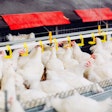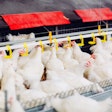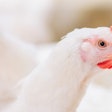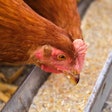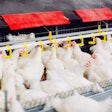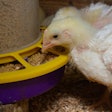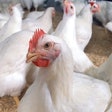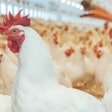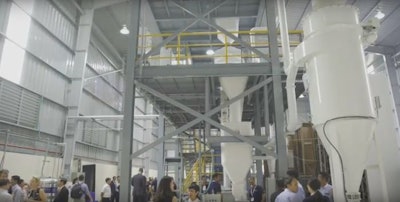
With the opening of a new state-of-the art feed mill in Vietnam, Evonik is inviting feed and feed additive producers to utilize the facility to test their products and collaborate on solutions.
“The collaboration between Evonik animal nutrition and Nong Lam University will create an opportunity to explore new concepts and also the feeding technologies for the future needs in the industry,” said Girish Channarayapatna, regional technical director, Asia South Evonik.
The feed mill is a scientific collaboration between Evonik and Nong Lam University dedicated to research trials to foster technological advancement of a more sustainable feed industry.
“The feed mill is also open to other companies who wish to test their products,” said Alfred Petri, senior vice president, sales animal nutrition, Evonik Nutrition & Care “It is not that Evonik has exclusive access to this feed mill. No, it is meant for the university; they take over. We just have ideas about what could be done, what products should be tested. … Evonik alone will not be able to provide all solutions, which are needed in this context.”
Located at the Nong Lam University campus in Ho Chi Minh City, the facility produces mash feed for research trials and is designed for handling various small batches, while minimizing cross contamination. As well as providing a basis for better research, the feed mill will also be an important teaching resource.
“The trial feed mill is designed to produce multiple batches of small sizes that is needed for animal trials, while a commercial feed mill is designed to produce high volumes of low-cost feed in a short time. So this feed mill has small mixers and no conveying elements, but we are using containers to go from one process step to the other in order to avoid cross contamination,” said Detlef Bunzel, head of applied feed technology, Evonik Nutrition & Care. “The research is done by universities and universities, in order to do research in animal husbandry, they need trial feed. The trial feed currently, they try to get from commercial feed mills, which are not optimized to produce trial feed because they produce lots of low-cost feed. While, in trial feed production, you need to focus on quality, on flexibility and on accuracy of small batches that you need for the trial feed production. On the other hand, also, the nutritionists will learn about feed production, which is another aspect of this whole project.”
Vietnam's challenges
Vietnam is No. 15 in the world in compound feed production in 2017, according to WATT Global Media’s World Feed Panorama 2018. According to Alltech’s 2018 Global Feed Survey, Vietnam has 218 feed mills and produces more than 19 million metric tons (mmt) of feed. Nearly 12 mmt of that is for pigs, more than 3 mmt is aquafeed, and 3.8 mmt is for layers and broilers.
Despite USDA reports that feed demand in Vietnam fell by 15 percent in 2017, the decline was in homemade animal feed, not in manufactured compound feed, a sector which grew 4.5 percent in 2017. Poultry and pig feed grew by 3.5 percent, while aquaculture feed increased an impressive 10 percent.
But, despite that growth, Vietnam has spent more than $1.96 billion on imported animal feed products, much of that from Argentina, the United States, Brazil, the Republic of Korea and Belgium, this year.
“Vietnam has some very specific challenges, as they are at the edge to really move away from antibiotics to antibiotic-free production, and that imposes a lot of challenges as well in feed production and medication of animal production. What they need to do to be prominent member of the global market is to get rid of all this stuff and establish themselves as a global player and that means a lot of efforts to phase out antibiotic treatments,” Petri said.








